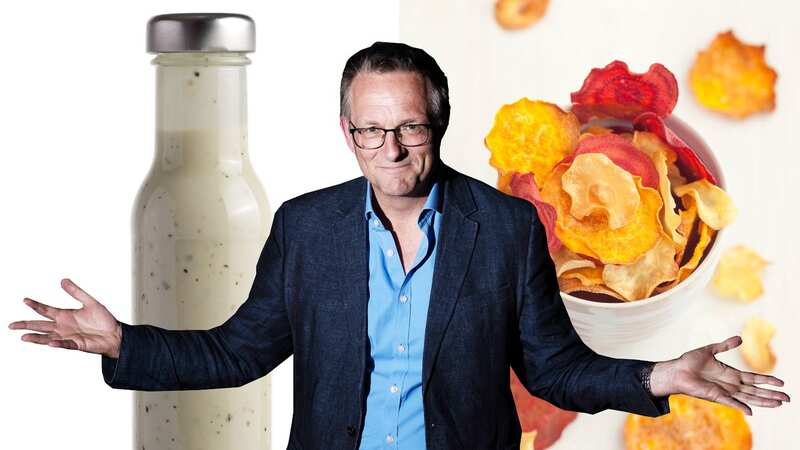Doctor Michael Mosley warns against four 'healthy foods' that actually aren't

Though often neglected, our diet plays a vital role in our health and well-being.
Certain nutrients help ensure our bodies function at their very best, while others can have quite the opposite effect - particularly if wolfed down in large quantities. Healthy eating is big business, and with so many options on the market it can sometimes be tricky to distinguish what's actually good for you from what purports to be good for you - but really isn't.
With this in mind, health expert Dr Michael Mosley has warned that while certain foods seem healthy, they can actually do "more harm than good". The TV regular and podcaster revealed that many food items claim to be low in fat or free from 'unhealthy' ingredients, but this could be misleading.
In a post on the Fast 800 blog, Dr Mosley wrote: "In a world full of food manufacturers, with clever marketing and a lack of science behind their claims, it can often become confusing to know exactly which foods are healthy when you're navigating the supermarket."
He shared four foods to avoid, even though they're marketed as healthier alternatives:
 Dr Michael Mosley shares exercise that can cut cholesterol and blood pressure
Dr Michael Mosley shares exercise that can cut cholesterol and blood pressure
Vegetable crisps
Many of us have reached for a vegetable crisp believing them to be healthier than a traditional potato variety. But Dr Mosley says these slimly-sliced veggies don't contain much nutritional value. He says as they're usually fried in lots of sunflower oil, they're no better for you than regular crisps. As an alternative, he recommended snacking on nuts, seeds, raw vegetables or gut-friendly foods such as sauerkraut and kimchi - a traditional Korean dish made up of salted and fermented vegetables.
Low-fat alternatives
In the past, low-fat alternatives have often been heralded as an easy weight loss solution. But scientific research has proven that full-fat foods can actually be good for us. The problem with low-fat products is that many of them have their nutrients removed, paving the way for the gap in taste to be replaced with sugar and additives.
"A study, carried out by researchers at Stockholm's Karolinska Institute, tracked the diets of 20,000 women over a period of 20 years,” Dr Mosley said. “The study found links between the consumption of full-fat dairy products [milk and cheese] and weight loss. Over a ten-year period, the women who regularly consumed full-fat milk saw a lower BMI."
If you can't see the poll, click here
Porridge sachets
Such sachets are seen as rapid way to rustle up a breakfast, but Dr Mosley advises caution. He says a single bowl of instant oatmeal can carry up to three spoonfuls of sugar, as some brands have a massive 16 grams of sugar per serving.
Bottled salad dressing
Salad is a healthy choice, packed with a variety of vitamins, minerals, and fibre-rich vegetables that nourish the body and support overall well-being. But just watch out for some of the dressings.
Dr Mosley says they "have a significant amount of calories per serving" - but people rarely stick to the recommended portion size. He added: "They're also packed with additives to extend their shelf life, thickeners, hidden and other nasties that simply don't belong in your cupboard!"
A healthier alternative would be to make your own using equal measures of olive oil and balsamic vinegar or lemon juice, he says.
Read more similar news:
Comments:
comments powered by Disqus

































